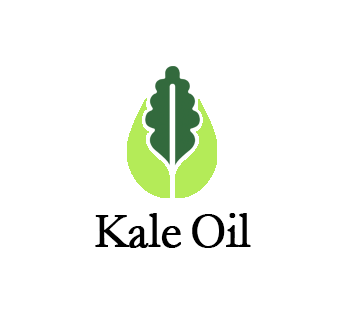Kale Oil: Vitamin A, beta-Carotene and Retinol
On the journey of manifesting Kale Oil, it was critical that the science must support all claims.
After discovering that Kale Oil contains 3 of the 4 Fat-Soluble Vitamins that are available, A, E and K1, I dug into the science!
I will summarize below and then go into detail:
Vitamin A in Kale Oil
B-carotene: 182,000 IU/100g
Retinol: 66.1 IU/100g
Observation: There seems to be some good science regarding the benefits of Vitamin A and skin health/healing.
Vitamin E in Kale Oil
Synthetic: 20.5 IU/100g]
As summarized by this statement, “We conclude that there is not yet sufficient evidence that mono-therapy with topical vitamin E has a significant beneficial effect on scar appearance to justify its widespread use.” (1)
Observation: The scientific articles are either weak or conclude that Vitamin E on the skin doesn’t do that much.
Vitamin K1 in Kale Oil
Phylloquinone (Vitamin K1): 0.07 ug/g (7 msg)
Observation: I didn’t find anything that compelling about the benefits of applying Vitamin K1 topically.
So, there is not enough science to support benefits of Vitamin E and K1, but Vitamin A is a major player in the game of skincare.
Kale Oil contains Vitamin A in 2 forms, Retinol and b-Carotene.
Retinol is well known in the skin care industry. “Topical retinoids are creams, lotions and gels containing medicine derived from Vitamin A. These compounds result in proliferation (rapid increase in numbers) and reduced keratinization” (2)
Keritization is when soft skin turns to rougher, tougher skin. Like a Callus.
Basically, Retinol can help grow new healthy skin cells and keeps it from hardening up.
beta-Carotene on the other hand, which is found in much higher concentration in Kale Oil than Retinol, seems to protect human skin from UV light, but when taken orally! This is not useful for our purposes because Kale Oil can cause free radical damage in the body. My advise is to stick with olive oil and avocado oil if you are ingesting oils.
I did however find that there is some data on applying Beta Carotene to skin:
“…topical β-carotene penetrated well into the human and mouse epidermis and induced 10- (human) and a 3-fold (mouse) increases, respectively, in epidermal retinyl esters.” (2)
“In a separate group of 53 individuals (80 years of age), topical application of 1% vitamin A for seven days increased fibroblast growth and collagen synthesis, and concomitantly reduced the levels of matrix-degrading MMPs. In addition, vitamin A treatment reduced MMP expression in aged, sun-protected skin.”
“Retinol (vitamin A) is widely used in the cosmetics industry as an anti-wrinkle agent. …Retinol was applied to skin in either an oil-in-water emulsion or a gel vehicle.”
Clearly I am in over my head. Holy Crap. But good crap!
I know that Kale Oil contains Vitamin A in 2 forms, Retinol and b-Carotene.
I know that beta-Carotene soaks nicely into the skin and induces a 10-fold increase in epidermal retinyl esters. I just don’t know what ‘epidermal retinyl esters’ are, but I think it is positive for skin health!
I know that basically, retinol can help grow new healthy skin cells and keeps it from hardening up or becoming callused.
I know that vitamin A treatment reduced “MMP expression” in aged, sun-protected skin. I just dont know that MMP expression means.
Vitamin A: “…increased fibroblast growth and collagen synthesis, and concomitantly reduced the levels of matrix-degrading MMPs.”
“Retinol (vitamin A) is widely used in the cosmetics industry as an anti-wrinkle agent.” (2)
Onwards and upwards.
Stay Strong,
Citations:
TY - JOUR AU - Tanaydin, Volkan AU - Conings, Jurek AU - Malyar, Masoud AU - van der hulst, Rene AU - Van der Lei, Berend PY - 2016/03/14 SP - sjw046 T1 - The Role of Topical Vitamin E in Scar Management: A Systematic Review VL - 36 DO - 10.1093/asj/sjw046 JO - Aesthetic Surgery Journal ER -
Huang ZR, Lin YK, Fang JY. Biological and pharmacological activities of
squalene and related compounds: potential uses in cosmetic dermatology.
Molecules. 2009 Jan 23;14(1):540-54. doi: 10.3390/molecules14010540. PMID:
19169201; PMCID: PMC6253993.

